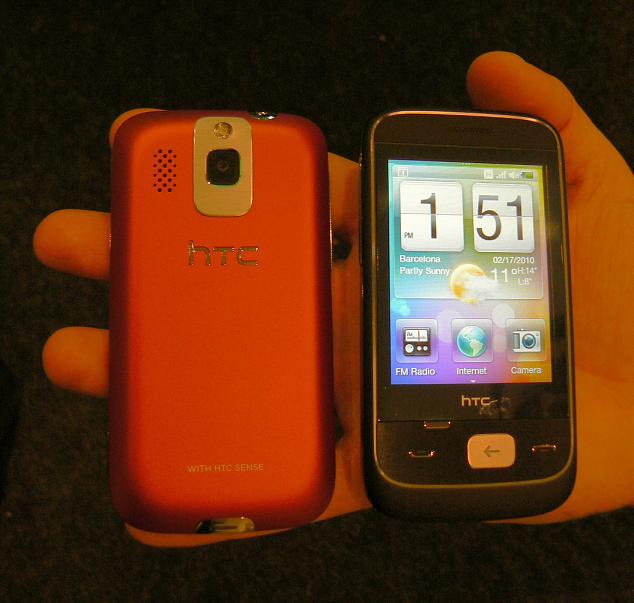Mark Bridge writes:
I’ve previously talked about a report from 2009 which warned how touch-screen phones that weren’t true smartphones were pushing down ARPU. Consumers thought they were buying something that was relatively advanced but were being seduced by form over function.
This week HTC stepped in to the arena with the HTC Smart, described by HTC's Peter Chou as "a more-affordable smartphone". Although it may not fit everyone’s definition of a smartphone, it certainly ticks most of the boxes. It has an open operating system, Qualcomm’s Brew platform, which has over 18,000 available applications and has been installed on over 1200 handset models worldwide.
The processor is a decent-enough 300MHz device, there’s an expandable memory, a 2.8-inch screen, a 3-megapixel camera and pocket-friendly 104 x 55 x 12.8mm dimensions.
 The HTC Smart is coming exclusively to O2 in Germany, Ireland and the United Kingdom from April, as well as being available on other networks worldwide.
The HTC Smart is coming exclusively to O2 in Germany, Ireland and the United Kingdom from April, as well as being available on other networks worldwide.
It’s equipped with the HTC Sense interface, immediately recognisable from HTC’s other smartphones. Consumers can customise the phone’s home page with widgets for fast access to their favourite applications, with the option of different ‘scenes’ for home, work, weekend and so on.
And it’s ready for social networking, aggregating information from Facebook and Twitter into a single stream of updates.
Steve Alder from Telefonica O2 promised that the HTC Sense would be “less than half the price of a smartphone today”. He wouldn’t talk about specific tariff pricing but those comments suggest a prepay price of well under £100 or perhaps a ‘pay monthly’ deal of £15.
When the iPhone’s exclusivity ended, we didn’t see a price war between Orange, Tesco Mobile and Vodafone. Nothing more than a minor tariff skirmish. But perhaps the HTC Sense could launch a much bigger conflict: the battle of the smartphones. Not a battle between manufacturers or operating systems. But a battle of high-street prices.